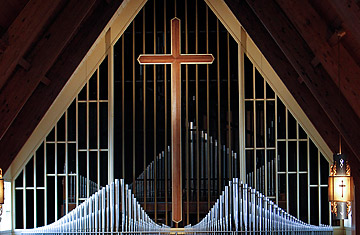
An imposition of ashes and the Holy Eucharist service was held at St. Martin's-In-The-Fields Episcopal Church at noon, Wednesday, February 22, 2012, in Columbia, South Carolina. Members came forward for the Rector to bless them and put ashes on their forehead in the shape of a cross.
(2 of 2)
If we interpreted all Scripture at the same level of authority, however, we would be more open to slavery, to the subjugation of women, to wider use of stoning. Jesus himself spoke out frequently against divorce in the strongest of terms. Yet we have--often gradually--chosen to interpret the Bible in light of not only tradition but also reason and history.
Given that sexual orientation is innate and that we are all, in theological terms, children of God, then to deny access to some sacraments based on sexuality is as wrong as to deny access to some sacraments based on race or gender. This is not about secular politics (though the secular political world is coming to share this view) but about the perennial effort to follow the ancient commandment to love others as ourselves. The central tenet of Christianity as it has come down to us is that we are to reach out when our instinct is to pull inward, to give when we want to take, to love when we are inclined to hate, to include when we are tempted to exclude.
I respect that others have different views on the same-sex issue. Nothing should properly create more humility than discussions about detecting the will of God. The decision of the General Convention, which allows for diocesan discretion, is a sensible one; it implicitly acknowledges that there is room for disagreement.
Perhaps, then, the approach taken by a small American institution might offer the country a useful example of how to deal with complex issues. A smoothly condescending right is no more attractive than a morally superior left. Both could do worse than to think about that as the argument goes on, which it surely will.
